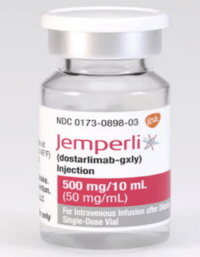Researchers at Memorial Sloan Kettering Cancer Center recently published the results of a trial which armed patients’ own immune systems to fight against a specific type of rectal cancer. In the trial, which had an initial small population of 14 patients to start, immunotherapy treatment was effective at shrinking and eliminating rectal cancer.
Experiment: Patients with clinical Stage II or Stage III MRI-staged, MSI-H or dMMR, solid tumors will receive up to 6 months (9, 21-day cycles) of PD-1 blockade followed by radiological and surgical restaging of the tumor. If subject exhibits complete clinical response, non-operative management will be followed. If a complete clinical response is not reached after 6 months of PD-1 blockade, the participant will proceed with standard chemoradiation. After completing chemoradiation participant will be assessed for response if complete CR is not obtained then the participant will proceed with disease specific surgical resection or standard of care therapy.
By the time the trial was completed, not a single patient had even a trace of the cancer remaining in their bodies. The results of the trial were published in The New England Journal of Medicine and Dostarlimab reportedly produced unheard results by curing 100% of all 12 colorectal cancer patients with certain conditions.
Result: A total of 12 patients have completed treatment with dostarlimab and have undergone at least 6 months of follow-up. All 12 patients (100%; 95% confidence interval, 74 to 100) had a clinical complete response, with no evidence of tumor on magnetic resonance imaging, 18F-fluorodeoxyglucose–positron-emission tomography, endoscopic evaluation, digital rectal examination, or biopsy. At the time of this report, no patients had received chemoradiotherapy or undergone surgery, and no cases of progression or recurrence had been reported during follow-up (range, 6 to 25 months). No adverse events of grade 3 or higher have been reported.
